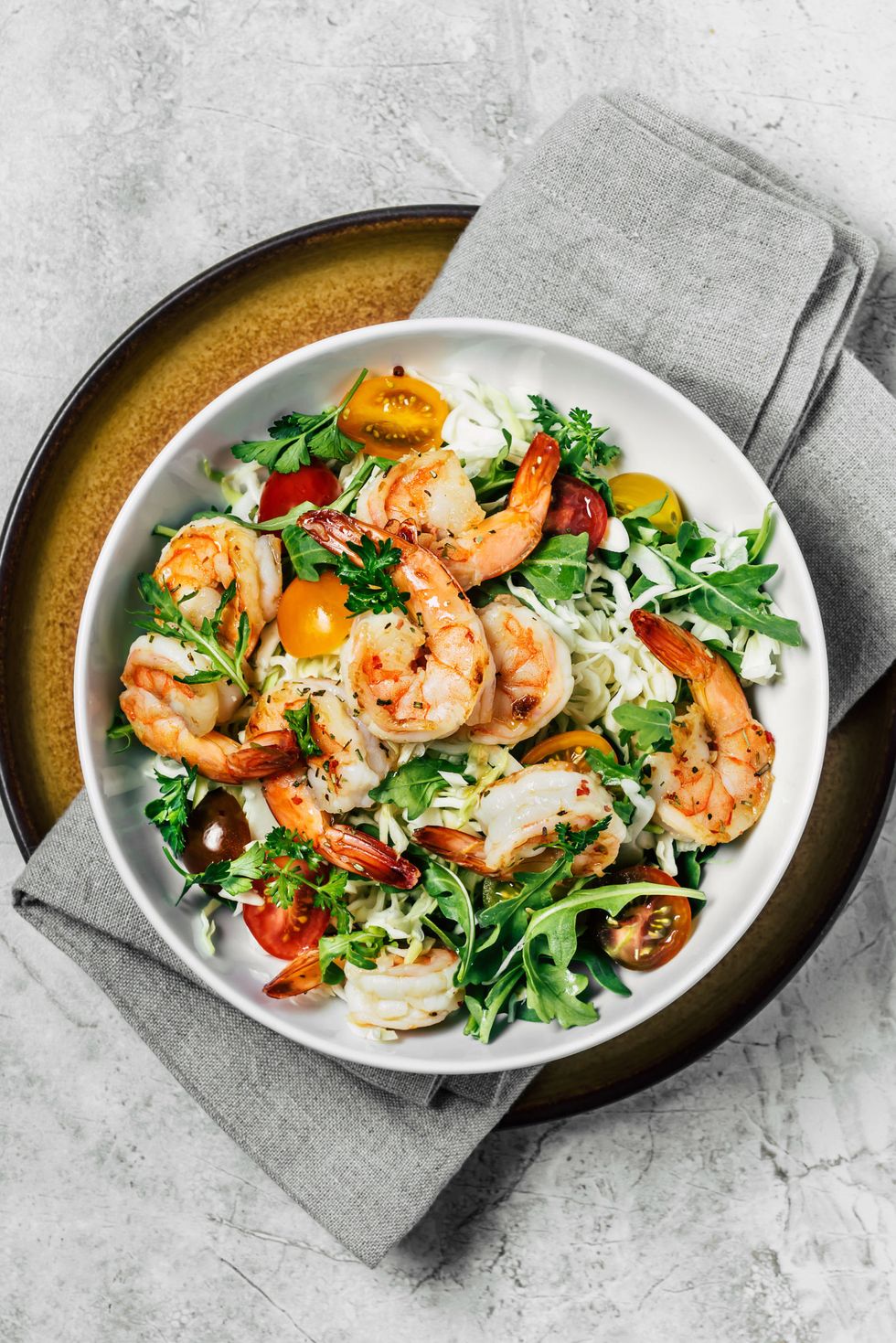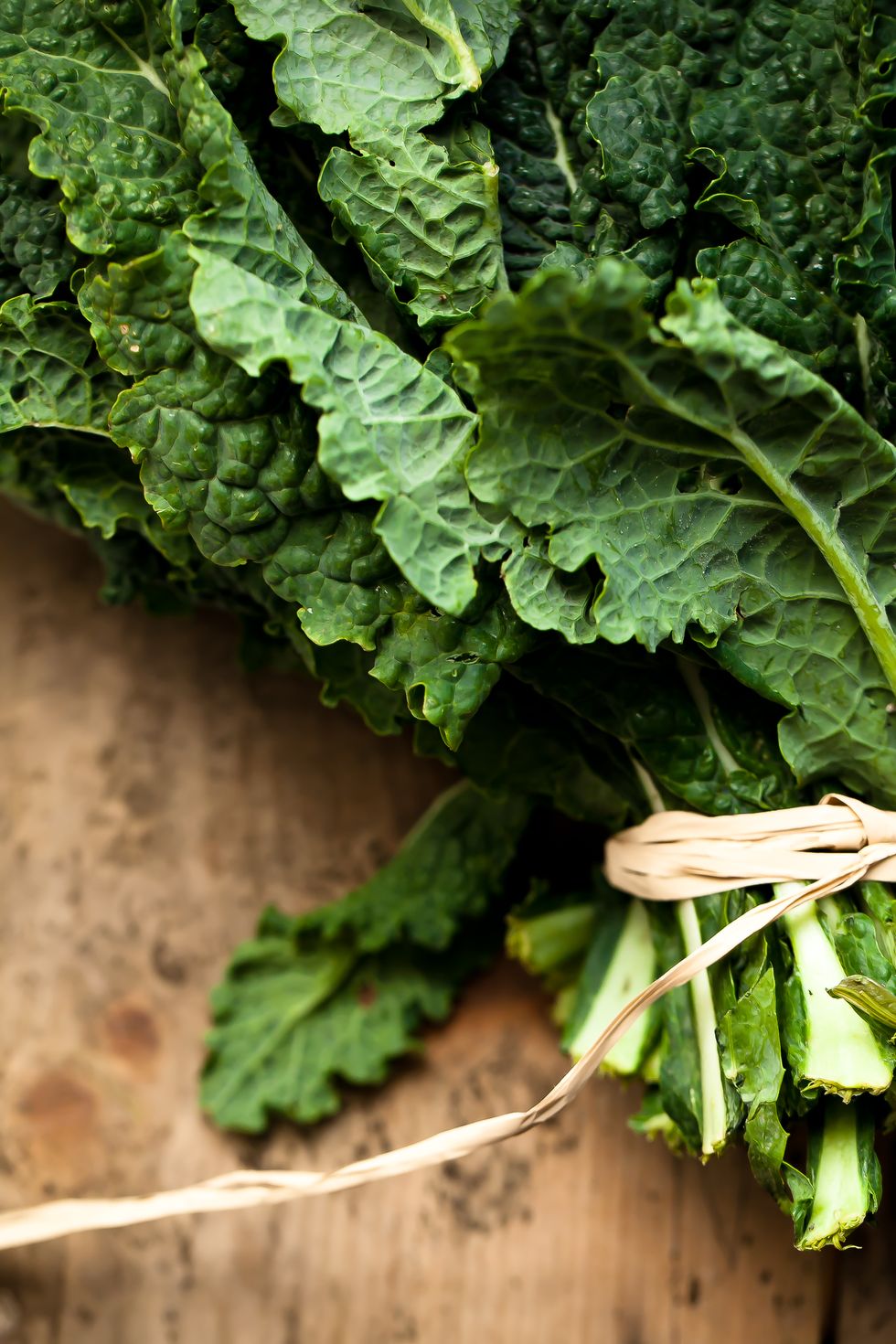Jaclyn London, MS, RD, CDN, Master of Science degree in Clinical Nutrition from New York University, explains the benefits of the anti-inflammatory diet. An enormous number of research supports this by suggesting that this diet is also good for prevention from many chronic diseases and conditions not just for weight loss.
12 Things You Need to Know About the Anti-Inflammatory Diet
| BY JACLYN LONDON, MS, RD, CDN, GOOD HOUSEKEEPING INSTITUTE
Jul 10, 2017
Anti-inflammatory foods are getting tons of hype these days. In fact, just about everyone is using the term "inflammation," from your cardiologist to Tom and Gisele! But keep your baloney detector on. This is what anti-inflammatory diets actually are — and aren't — all about.
1- Inflammatory diets are also a thing.
 The saturated fat, added sugar and sodium in refined carbs and processed snacks make your body's cells work overtime to get their regular job done. Doctors can identify inflammation using biomarkers of oxidative stress, the result of biological processes that cause organ tissue damage. Diet, exercise and smoking status can affect inflammation, but so do uncontrollable causes like autoimmune diseases.
The saturated fat, added sugar and sodium in refined carbs and processed snacks make your body's cells work overtime to get their regular job done. Doctors can identify inflammation using biomarkers of oxidative stress, the result of biological processes that cause organ tissue damage. Diet, exercise and smoking status can affect inflammation, but so do uncontrollable causes like autoimmune diseases.
2- It's not just for weight loss.
 Anti-inflammatory eating is more of a disease prevention plan. An overwhelming amount of research has shown that people who eat anti- inflammatory foods are at significantly lower risk of developing chronic disease. They're also more likely to maintain healthy weights.
Anti-inflammatory eating is more of a disease prevention plan. An overwhelming amount of research has shown that people who eat anti- inflammatory foods are at significantly lower risk of developing chronic disease. They're also more likely to maintain healthy weights.
3- Anti-inflammatory foods are everywhere.
 The anti-inflammatory diet is often considered a Mediterranean diet, since they recommend the similar foods: Veggies, fruit, whole grains, nuts, seeds, oils, legumes, low-fat dairy and fish. The flavonoids in plants are specifically linked to protecting your body's cells from damage. Both produce and lean protein sources like beans and seafood also contain good-for-you polyunsaturated and monounsaturated fats
The anti-inflammatory diet is often considered a Mediterranean diet, since they recommend the similar foods: Veggies, fruit, whole grains, nuts, seeds, oils, legumes, low-fat dairy and fish. The flavonoids in plants are specifically linked to protecting your body's cells from damage. Both produce and lean protein sources like beans and seafood also contain good-for-you polyunsaturated and monounsaturated fats
4- You may have these hidden signs of inflammation.
 You can’t feel inflammation but, if you know what symptoms to look for, you can catch it early, before health conditions emerge. According to Dr. Corey Kirschner – author of the Whole Body Cure, a breakthrough program teaches you how to reduce inflammation. Potential inflammatory warning signs include digestive issues, intermittent joint pain, new food sensitivities, belly fat, worsening allergies, brain fog, unexplained fatigue, moodiness, sleep problems, and rashes.
You can’t feel inflammation but, if you know what symptoms to look for, you can catch it early, before health conditions emerge. According to Dr. Corey Kirschner – author of the Whole Body Cure, a breakthrough program teaches you how to reduce inflammation. Potential inflammatory warning signs include digestive issues, intermittent joint pain, new food sensitivities, belly fat, worsening allergies, brain fog, unexplained fatigue, moodiness, sleep problems, and rashes.
5- It's inclusive, not exclusive.
 Traditional diets always talk about what you can't eat, but when it comes to anti-inflammatory diets, more is more. Colorful foods like leafy greens (spinach, kale), cruciferous veggies (broccoli, cauliflower), carotenoids (tomatoes, carrots) and anthocyanins (beets, berries) are all anti-inflammatory staples.
Traditional diets always talk about what you can't eat, but when it comes to anti-inflammatory diets, more is more. Colorful foods like leafy greens (spinach, kale), cruciferous veggies (broccoli, cauliflower), carotenoids (tomatoes, carrots) and anthocyanins (beets, berries) are all anti-inflammatory staples.










